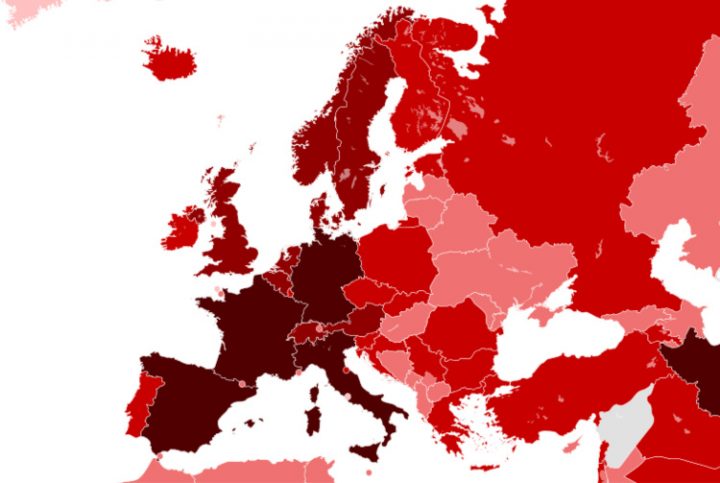All of Europe is now in a state of emergency because of the coronavirus pandemic, and each state taking urgent measures to address it. At present, the European Commission has announced some initial measures, which include loosening the financial stability rules, funds for research and support for the most vulnerable sectors and small and medium-sized enterprises. Of course, these amounts (for example € 140m for research, € 8bn for businesses) are a small amount in comparison to those spent annually on arms and nuclear.
So far, it seems that each state is essentially alone in tackling this pandemic, with the exception of the help provided by China with donations of medical supplies and Cuba sending out doctors. Although Europe is launching and planning a larger bailout, will this time be the people its priority or the financial system as in the 2008 crisis?
The European Network for Unconditional Basic Income (UBIE) has started a petition, asking the European Union for emergency basic income to tackle the effects of the coronavirus pandemic.
In its petition, UBIE states:
We call on the European Union, and the Eurogroup in particular, to create an EU-led financial instrument to support all EU Member States in the quick introduction of an Unconditional Basic Income as an urgency measure, to provide prompt and unbureaucratic relief to everyone in Europe whose economic security and existence is threatened by the coronavirus crisis.
Why is this important?
From one day to the next, the list of people who lost their source of income and don’t know where to turn is endless. Hairdressers, taxi drivers, restaurant managers, music teachers, gym trainers, hotel receptionists, flight attendants, waiters, tour guides and countless others don’t know how they’re going to pay their bills.
Insecurity is everywhere and can be sensed in every conversation. How long will it last? What shall I do? How much longer will I have to pay for groceries with my savings?
That is why European leaders have to step up and say without delay: We will help! The EU has the means and the authority to do it now.
Politics are already shifting – even in seemingly unlikely places. The United States government just announced a $1000 payment for all US citizens for two months. [1] The UK government is not excluding a similar measure. [2] Extraordinary payments are making headlines in mainstream media. Before we know it, EU leaders will be on to this. Let’s make sure they get it right.
Since the last major crisis in 2008, the EU has pumped trillions of Euros into the failing financial sector. Now it is time to support the people.
Basic income is an unconditional monthly payment for every person, in an amount which guarantees a basic level of everyday security. The system is easy, quick to introduce and requires minimum bureaucracy. [3]
And we know that the European institutions are working on a big rescue plan. This is the moment for us to influence what they decide and to recognize the opportunity to make a big change. [4]
Crises can bring out the best or worst in us. Let’s go for the best. Many people are using this as an opportunity for creativity and solidarity. The EU must also do this.
The entire economic system is changing right now. Dogmas fall, narratives shift. Leaders are looking for solutions. They were very creative when they were saving the banks, and they can be creative now, in a moment when 24% of Europeans already at risk of poverty are now in danger of spiraling further. [5] We must make sure the EU acts. Sign!
References:
[1] https://www.newsweek.com/4000-1000-tax-breaks-lawmakers-economists-weigh-solutions-help-americans-amid-economic-1493098
[2] https://www.telegraph.co.uk/business/2020/03/18/johnson-considers-giving-free-cash/
[3] The EU would create a fund and guarantee the minimum payment. The member states, which have the necessary technical base, would distribute the money, and add more if they want to.
[4] https://www.ecb.europa.eu/press/pr/date/2020/html/ecb.pr200318_1~3949d6f266.en.html
[5] One of the main sources could be the so-called quantitative easing – where the European Central Bank would buy government or other securities in order to add money directly into the economy. The ECB decision from 18 March 2020 to allocate 750bn to address the coronavirus crisis shows that money can be made available fast if needed. https://www.ecb.europa.eu/press/pr/date/2020/html/ecb.pr200318_1~3949d6f266.en.html






